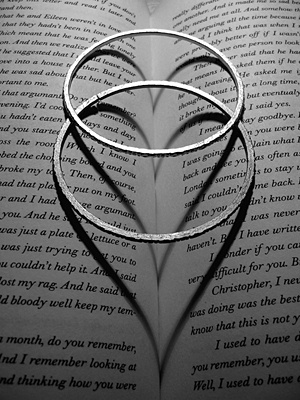All Nonfiction
- Bullying
- Books
- Academic
- Author Interviews
- Celebrity interviews
- College Articles
- College Essays
- Educator of the Year
- Heroes
- Interviews
- Memoir
- Personal Experience
- Sports
- Travel & Culture
All Opinions
- Bullying
- Current Events / Politics
- Discrimination
- Drugs / Alcohol / Smoking
- Entertainment / Celebrities
- Environment
- Love / Relationships
- Movies / Music / TV
- Pop Culture / Trends
- School / College
- Social Issues / Civics
- Spirituality / Religion
- Sports / Hobbies
All Hot Topics
- Bullying
- Community Service
- Environment
- Health
- Letters to the Editor
- Pride & Prejudice
- What Matters
- Back
Summer Guide
- Program Links
- Program Reviews
- Back
College Guide
- College Links
- College Reviews
- College Essays
- College Articles
- Back
The Exploitation of the Wedding Industry
TV shows and movies depict “happily ever after” with an extravagant wedding. People watch animated movies where the princess gets her royal wedding, a cake show where the expensive cake made the wedding successful or even watch a real life royal wedding. When people look to the future and want to get married, more often than not they have ideas about their dream wedding. But the traditional wedding path can often set back new couples financially, and more importantly, they often put pressure on how the couple will change once they are married.
The wedding industry has set up a list of expectations that guests will have when attending. A traditional wedding places “necessities” at huge prices. Couples planning for a wedding have to think about a venue, a cake, a dress and veil, rings, decor (linens, lighting, wedding arch), hiring a caterer, florist, photographer, videographer, DJ/Band, and even a wedding planner. Modern day media drills it into our brains that these things are necessities when in reality a wedding is about legally binding a couple together, and the reception is about celebrating that bond.
According to Business Insider, the average national cost of a wedding is over 30,000 dollars. This isn’t always due to couples wanting to have a blowout wedding, most couples won’t have any experience in making purchases for weddings, leaving them vulnerable to wedding vendors. According to Bustle, a digital publishing platform directed towards millenial women, most vendors have a “wedding markup”, meaning that buying their service for a different occasion would be cheaper. Because of this, couples often spend way more money than what is necessary.
The view on what is a necessity is also an issue in the wedding industry. The idea that the dress and cake and venue are necessary is absurd. A wedding should be about the bond between a couple, and the reception is celebrating the officiation of that bond. By over glorifying weddings, couples set up expectations for how their relationship will change when they get married. Unfortunately, when this change does not appear many brides and grooms fall into a “Post-Wedding Depression”. According to The Washington Post, nearly half of the brides surveyed said that they felt depressed or let down after their wedding. A psychologist who was quoted in The Washington Post said that “the more pressure and expectations, the harder the letdown can be.”
The purpose of wedding ceremonies has also been twisted throughout the years. Historically, wedding ceremonies were held as a way for the bride and groom to make a spoken promise to each other in front of a witness (and God if they felt so inclined). The ceremony was also a way for the family to showcase the bride. In a more modern setting, wedding ceremonies and receptions are a way for the couple and their families to celebrate their joining together.
So should couples spend money to have an extravagant wedding? It depends on personal preference. Some couples may choose to have a large wedding to be more inclusive to a larger party of people. For some couples a larger wedding will benefit them through the use of a wedding registry. And some couples may simply have a preference for an extravagant wedding. At the end of the day the wedding should reflect the wishes of the couple rather than the expectation of those around them. And while one may be able to see how the wedding industry exploits couples, many of those same people will still dream of their wedding day and their future tiered cake. And that is perfectly okay.
The more pressing issue is the way that the media glosses over the hard fall couples often experience after a grande wedding. Whether or not a couple wants a large wedding, they should be made aware of the emotional and psychological stress it causes. Too many couples have been led to believe that the wedding will solidify love in a relationship, when in reality weddings cause couples to anticipate a change in their relationship that simply will not come.

Similar Articles
JOIN THE DISCUSSION
This article has 0 comments.
